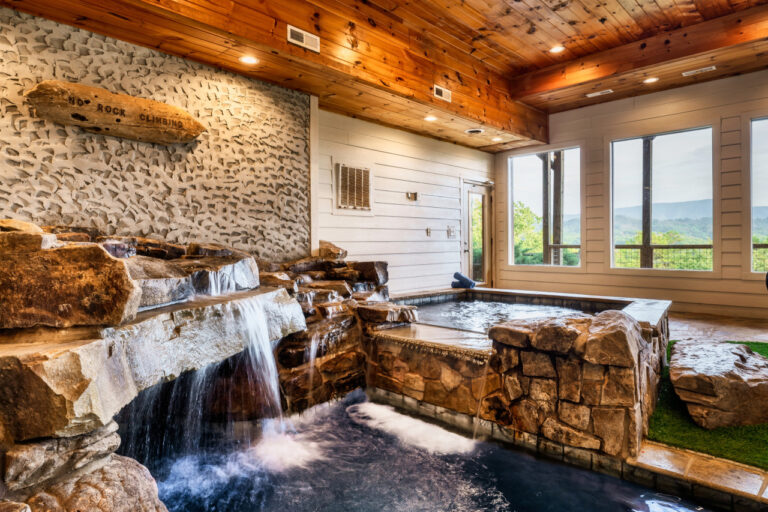In an age where constant connectivity often overshadows genuine connection, a rising number of travelers are seeking solitude as the ultimate luxury. The art of vacationing for solitude isn’t about isolation for isolation’s sake; it’s about finding spaces to recharge, reflect, and rediscover.
While many of Unwind Luxury Vacation’s homes are designed for crowds, there are plenty of options for the solo traveler, or for those traveling in small groups looking for some peace and quiet. You’ll fall in love with Unwind’s skilled design and attention to every last detail.
Take a look at our properties HERE and select the destination that’s just right for your next rejuvenating getaway.
This blog delves into the growing appeal of solitude in travel, the psychology behind it, and the ways individuals are incorporating it into their lives. We’ll also explore the destinations, tips, and challenges that come with prioritizing peace over the hustle and bustle of traditional vacations.
The Allure of Solitude: A Shift in Travel Culture
In the past, vacations were synonymous with social activities, sightseeing, and cramming as many experiences into a trip as possible. Whether it’s hitting the slopes with friends over winter break, cramming into Times Square in New York City on New Year’s Eve, or enjoying a crowded beach on Spring Break, vacations have long been about going where the people are.
But as burnout, political turmoil, information overload, and mental health awareness become global topics, solitude is increasingly seen as an antidote to the chaos.
For many, solitude offers:
- Mental Clarity: Stepping away from daily routines and social pressures can clear mental fog.
- Reconnection with Nature: Solitary vacations often emphasize immersing oneself in natural beauty, from remote forests to secluded beaches.
- Personal Growth: Solitude fosters introspection, helping travelers realign with personal values and goals.
Psychology of Solitude: Why Are We Craving It?
The need for solitude is deeply ingrained in human psychology. Research shows that occasional solitude can lead to improved mental health, creativity, and even stronger social relationships. Here’s why:
- Rest from Connectivity: With constant notifications and messages, the brain rarely gets a break. Solitude offers a chance to digitally detox.
- Self-Reflection: Solitude allows for uninterrupted thought, which can lead to profound self-discovery.
- Reduced Anxiety: Without external pressures, stress levels can significantly decrease.
The pandemic accelerated this trend, as periods of isolation taught many people the value of slowing down and focusing inward.
How to Plan a Solitude Vacation
1. Define Your Solitude Goals
What do you want from your time alone? Introspection? Creative inspiration? Relaxation? Your goals will shape your destination and activities.
2. Pick the Right Setting
- Natural Retreats: Forests, mountains, and beaches are ideal for those who find peace in nature.
- Quiet Urban Spots: Museums, libraries, and hidden cafes in cities can also offer solitude without total isolation.
3. Minimize Distractions
- Turn off your phone or set specific times for checking it.
- Avoid overly packed itineraries to allow for spontaneity.
4. Pack Thoughtfully
Bring items that enhance your experience: journals, books, comfortable clothing, or sketchpads.
5. Embrace the Silence
The first few hours or days might feel unnerving if you’re used to noise, but lean into the stillness. Use exercises like staying with your breath, journaling, or mindful walking to help calm your brain.
Activities to Enjoy During Solitude Vacations
- Meditation and Yoga
Quiet spaces are perfect for mindfulness practices that deepen the experience of solitude. - Hiking and Outdoor Exploration
Long walks in nature allow for uninterrupted thought and a deeper connection to the environment. - Journaling
Documenting thoughts, feelings, and observations can be both therapeutic and a way to process your experience. - Creative Pursuits
Painting, writing, or photography can flourish in the absence of distractions. - Stargazing
Solitude vacations often take you far from city lights, offering breathtaking night skies.
Tips for Navigating Challenges
- Ease Into It
If you’re new to solitude, start with shorter trips or destinations closer to home. - Stay Safe
Share your itinerary with someone you trust, and research safety tips for solo travelers. - Balance Solitude and Interaction
Consider accommodations that offer privacy but also communal spaces if you need occasional human connection. Despite the need to get away and be alone, we do still need human interaction to thrive.
Why Solitude Travel Is Here to Stay
As society grows more hectic, the allure of stepping away will only intensify. Solitude travel is more than a trend—it’s a movement toward prioritizing mental health and personal growth.
For some, it’s a temporary escape. For others, it’s a lifestyle change that reshapes how they approach the world.
Final Thoughts: Finding Your Solitary Path
Whether you’re a seasoned solo traveler or considering your first solitude vacation, the journey promises to be transformative. It’s a chance to pause, breathe, and rediscover what truly matters.
While many of Unwind Luxury Vacation’s homes are designed for crowds, there are plenty of options for the solo traveler, or for those traveling in small groups looking for some peace and quiet. You’ll fall in love with Unwind’s skilled design and attention to every last detail.
Take a look at our properties HERE and select the destination that’s just right for your next rejuvenating getaway.
So pack your bags, leave your worries behind, and take the first step toward a journey that’s all about you.


